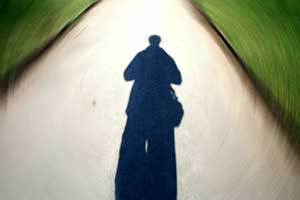Most of us think of alcohol as a fun, social drug. In fact, most of us don’t think of alcohol as a drug at all (even though it is).
If you’re like most people, you turn to alcohol to lose your inhibitions, to forget about your troubles, and just have a good time.
But, if you find yourself feeling depressed after drinking, whether its after a wild night of binge drinking, or even just after a glass of wine, you’re learning the hard way that alcohol is a depressant.

Contents
Why You Feel Depressed After Drinking
Alcohol Is A Depressant
Is alcohol really a depressant? Because alcohol is usually used in a social setting for fun, most people have no idea that alcohol is actually a depressant, not a stimulant. I know what you’re thinking – if alcohol is a depressant, why doesn’t everyone get depressed when they drink?
Even though alcohol is a depressant, it affects people in different ways – some people will start to feel mild feelings of depression as soon as they have a drink, others will have great experiences with alcohol at first, but if they abuse alcohol continuously over long periods of time, they’ll start to develop depression and anxiety. Some people will be bubbly and social when they first drink, then get angry and abuse, then cry uncontrollably by the end of the night. Others will only feel depressed the next morning.
Alcohol Masks Existing Feelings Of Depression
In addition to alcohol’s depressive properties, many people feel depression after drinking because they were using alcohol to mask their existing depression and anxiety. Many of us who have abused alcohol started doing so at a time when we were having difficulty coping with regular life – whether we realized it or not. Alcohol can sometimes mask those feelings at first, but they ultimately bubble back to the surface – usually much stronger than before.

Alcohol Abuse Has Negative Effects On Your Life & Health
If you abuse alcohol over a long period of time, it can also create more problems in your life, which can lead to further depression. Losing your job, losing a relationship, getting arrested for a DUI, alienating loved ones – these are all painful experiences that can drive a person towards depression. Especially if they happen in combination.
The more bad things that happen, the more depressed and hopeless the alcoholic feels. The more depressed they feel, the more they drink. Its a vicious cycle that can only be broken when the alcoholic recognizes their problem and actually takes real steps to addressing their problem. This could mean checking into a rehab facility, going for out-patient rehab, detoxing and seeking counselling, or attending recovery group meetings.





{ 0 comments… add one now }
You must log in to post a comment.